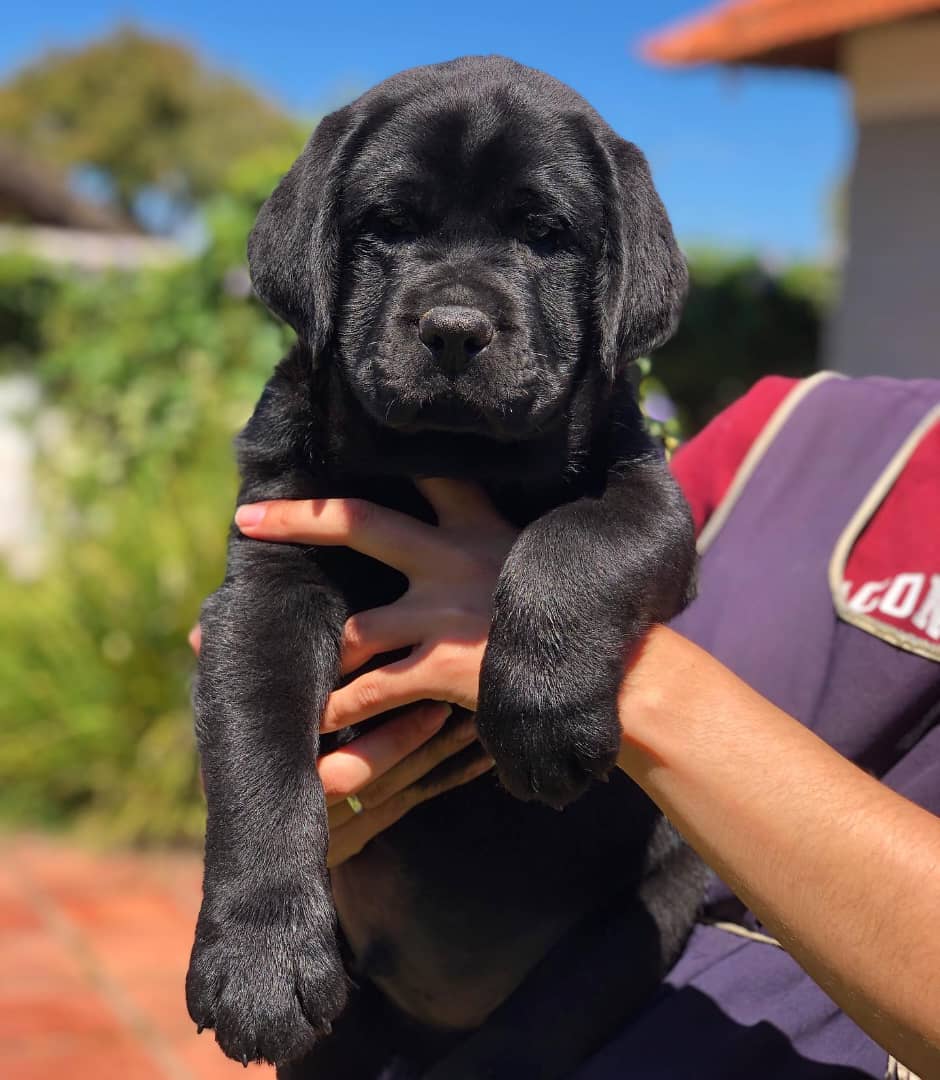Labrador retriever is a medium to large dog breed with a short coat and sturdy physique that’s a member of the sporting group and originated in Newfoundland and the U.K. Labs are known for their intelligence, fine character, and good temperament. Although they were bred to be hunting dogs, they’re also excellent companions. In addition to their sporting abilities, Labs make excellent service dogs and therapy dogs. You will also see them employed in drug and explosive detection, water rescue, and search and rescue.
Breed Overview
GROUP: Sporting
HEIGHT: 22.5 to 24.5 inches (male), 21.5 to 23.5 inches (female)
WEIGHT: 65 to 80 pounds (male), 55 to 70 pounds (female)
COAT: Short, dense double coat
COAT COLOR: Black, chocolate, or yellow
LIFE SPAN: 10 to 12 years
TEMPERAMENT: Friendly, active, companionable
HYPOALLERGENIC: No
ORIGIN: Newfoundland/United Kingdom
Characteristics of the Labrador Retriever
Labrador retrievers tend to have a friendly and outgoing personality. Their temperament also is driven by a high energy level. They like having a job or activity, and they are highly trainable.
| Affection Level | High |
| Friendliness | High |
| Kid-Friendly | High |
| Pet-Friendly | High |
| Exercise Needs | High |
| Playfulness | High |
| Energy Level | High |
| Trainability | High |
| Intelligence | High |
| Tendency to Bark | Medium |
| Amount of Shedding | High |
Labrador Retriever Care
Labs are best suited for homes where they can get plenty of exercise and training. They are high-energy dogs that need lots of attention. Their grooming is fairly simple, though they do shed quite a bit.
Exercise
Labs can become hyperactive and destructive if they don’t get enough daily physical activity and mental stimulation. Plan on at least two hours of exercise each day, such as walks, jogs, hikes, and active playtime. Because these are such people-focused dogs, they’d rather exercise with you than be left in a yard alone.
Thanks to their background as water dogs, Labs love to swim whenever and wherever they can (even in puddles). So a dog sport like dock diving would be perfect to keep them entertained. Likewise, as retrievers, they love to play fetch. Getting your dog involved in service work, therapy, and other canine jobs also can help to keep it fit and mentally stimulated.
Grooming
Labs have smooth, water-resistant coats that require little more than basic grooming. However, the thick coat does tend to shed a lot, so at least a weekly brushing is important to remove loose fur and distribute skin oils. Also, Labs tend to shed more heavily in the spring and fall as the weather changes. So you’ll likely have to brush multiple times per week to keep up with the loose fur. Fortunately, because their coat naturally stays pretty clean, Labs generally only need a bath every couple of months.
Plan to trim nails roughly every month, depending on how much your dog wears them down. Also, aim to brush its teeth daily. And check the ears at least weekly for dirt, debris, and any signs of infection. Make sure to dry the ears after swimming and baths.
Training
Start socializing and training your Labrador when it’s a puppy to help direct its energy and strength in a positive way. Labs are eager to please, and they like having a job—even if that job is learning obedience skills. So training is generally easy as long as you are consistent and use positive reinforcement.
It’s ideal to expose a Lab puppy to different people, animals, and situations to help it learn to be a calm and confident dog. Also, enroll in puppy classes as soon as your dog meets the age requirement.
As true family dogs, Labs usually get along well with children and are known to be incredibly loyal and loving. However, young children should always be supervised around a dog. Labrador retrievers also typically do well in multi-pet households, especially when socialized with other animals from a young age. Always monitor any new additions to ensure all of the pets are behaving appropriately. Obedience instructors can give tips for introducing both children and pets to your Lab.








Lisa Archuleta-Leija –
From the first time we saw a picture of our baby, to finally bringing him home, Exotic Retrievers was with us making sure we completed all the paperwork correctly and had a real live caring helpful person waiting by the phone ready to answer any question or concern we had! What a great way to bring home a new family member